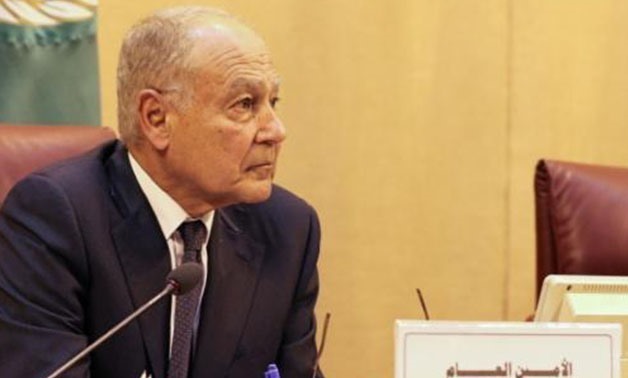
FILE - Secretary-General of Arab League (AL) Ahmed Abul Gheit
CAIRO– 26 November 2017: Arab League (AL) Secretary General Ahmed Abul Gheit said Sunday that the AL follows with concern talks between the two Arab downstream countries (Egypt and Sudan) and Ethiopia.
He stressed that water security for Egypt - which he called the the biggest Arab country in terms of population - is part and parcel of the Arab national security.
During his speech at the inauguration of the fourth Arab Water Forum, Abul Gheit said that Ethiopia does not tend to show cooperation or enhance coordination, adding that Ethiopia's plans for operating the Renaissance Dam and using its water in irrigation are ambiguous.
He called on Ethiopia to enhance the values of cooperation and transparency, seeing in that the only way to benefit from the water of the Nile River that serves 400 million persons living on either of its banks.
He expected this figure to increase to one billion people by 2050.
The AL chief pointed out to the stalled talks between Egypt and Ethiopia, especially where the standards of construction and operation of the dam on the Blue Nile are concerned.
Egypt gets 85 percent of its water quota from the Ethiopian plateau and does face water scarcity as the citizen's quota does not exceed 660 cubic meters of water annually, he noted.
This quota is expected to decrease to 552 cubic meters annually by 2025, Abul Gheit underlined.
The Arab Water Forum is held in a critical time as the Arab world seeks solutions to challenges, atop of which water scarcity, drought and the negative impact of climate change, he reiterated.
The AL chief asserted that water scarcity is considered one of the most hazardous threats to the Arab national security, adding that 40 percent of the population in the Arab world live in areas suffering ultimate water scarcity.
Abul Gheit said that Arabs constitute five percent of the world population, but they do not get except one percent of the world's fresh water.
He also referred to water challenges Syria has been facing since 2011, warning that might have a negative impact on the political stability, social peace and economic position of this Arab country.
He pointed out also to the Israeli oppressive practices against the Palestinians; preventing them from using their natural resources, including water.
Comments
Leave a Comment